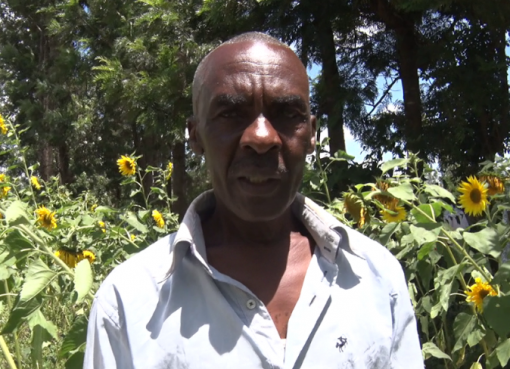Kenyan Universities have been challenged to channel resources in agricultural research, innovation and technology as a way of achieving food security in the country.
The Chief Administrative Secretary (CAS) for University Education and Research, Prof. Colleta Suda said reliance on seasonal subsistence farming and the slow adoption of modern farming meant that chronic malnutrition and acute food shortages will remain a reality.
Prof. Suda said despite agriculture’s key role in addressing the food security problem, the sector faces myriad challenges such as climate change, water scarcity, diminishing arable land, soil degradation and rural-urban migration.
To deal with the issue of food security, noted the CAS, Kenya needed to look beyond policy actions to innovation.
At the same time, Prof. Suda who was the chief guest during the launch of Egerton University 2018-2023 Strategic Plan said due to diminished funding from the state, public universities needed to come up with partnerships, linkages and collaborative arrangements with donor agencies, research organisations and foreign institutions of higher learning.
The CAS said due to the increased number of public universities, the government was increasingly finding it difficult to sufficiently fund their research and operation programmes.
She also challenged universities to carry out institutional reforms aimed at streamlining their operations and cutting on unnecessary financial expenditures.
Prof. Suda said new innovations in technology will enable agricultural stakeholders to make more informed decisions, which in turn makes farming more modern and profitable.
Similarly, the CAS said the sector was likely to benefit from the concept of e-agriculture.
Universities and other research agencies in the country, suggested Prof. Suda had the capacity to come up with mobile applications, tools and new products that can help farmers research data around weather patterns, soil and humidity, expected growth, and other factors that increase productivity, minimise costs and ultimately make agriculture more profitable.
Reliable technology she observed was good for collecting and analysing data that helps researchers, governments and farmers to make informed decisions about what and when to plant.
According to the 2018 Economic Survey, food worth Sh.150 billion went to waste, an unacceptable scenario in a food insecure country where hundreds of families still go to bed hungry.
The survey prepared by the Kenya National Bureau of Statistics shows that 1.9 million tonnes of food was discarded.
For Kenya to realise its ambitions on food security the CAS said a deliberate investment in technology, which facilitates access to relevant data, markets and financial services, will be critical.
If done right, she asserted agriculture can help meet the United Nations’ SDG number two of ending hunger, achieving food security and improving nutrition and promoting sustainable agriculture.
This in turn can be the engine that fuels rural development, improves resilience to climate change, grows employment opportunities, and ultimately grows our economy.
By Anne Mwale/Dennis Rasto



